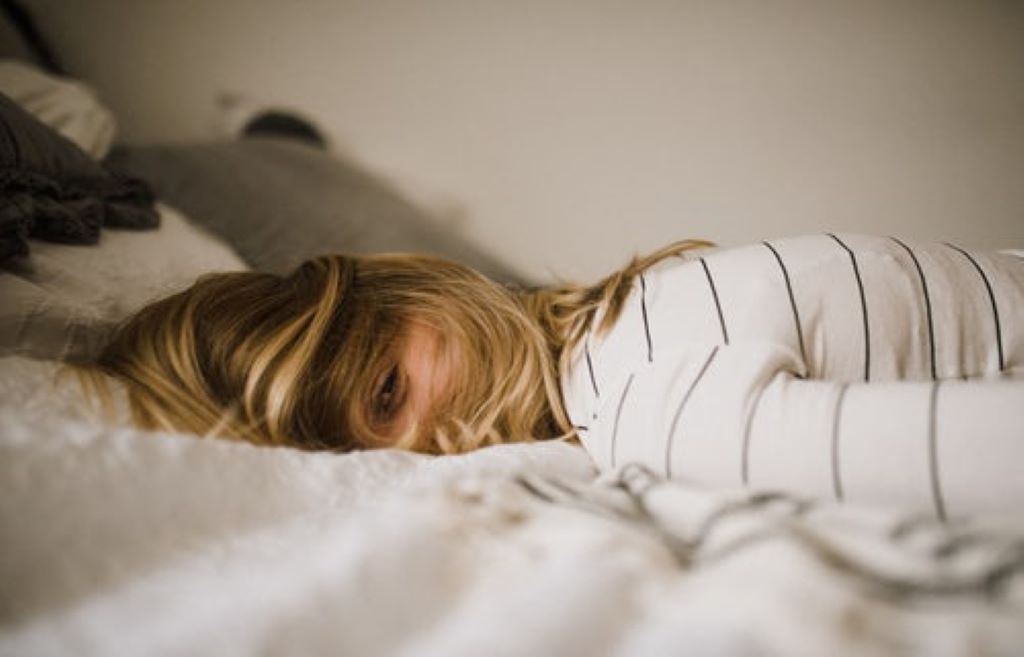The importance of sleep & how to rest for success

Are you getting enough sleep? National statistics on sleep suggest otherwise. The NHS recommends that most of us need around 8 hours sleep per night, yet surveys show that many of us fall short of this. With around 31% of British adults suffering chronic insomnia, 67% reporting disrupted sleep and 23% failing to get more than 5 hours sleep per night, it’s clear that as a nation we’re not getting enough slumber.
In recent years it’s become trendy to try and ‘hack’ everything, with some wellness gurus claiming they can help optimise your productivity on as little as 5 hours a night. But there’s bad news if you were hoping to scrimp on shut-eye - the science just doesn’t stack up. By cutting back on night rest, not only could you be reducing your output and impacting your short-term wellbeing, you could be risking your health and increasing your risk of degenerative diseases. There’s a reason why the world’s greatest athletes including Usain Bolt, Roger Federer, and Venus Williams snooze for at least 10-12 hours daily - they know you need to rest for success.
Why quality sleep is important
There’s no grey area here - studies clearly show that sleep plays a vital role in maintaining our long term health and day to day wellbeing. Tiredness affects our judgement and mood, impacting our work, relationships and increasing the risk of road accidents. When we sleep, our brain consolidates memories, which is in part why we have trouble recalling things and feel less ‘sharp’ after a few late nights. Failure to get enough quality sleep has been associated with increased risk of many illnesses from decreased immunity and Type 2 diabetes to heart disease and stroke, mental health problems, and obesity. With mental health conditions being talked about more openly, it’s interesting to note that according to the NHS, when people with anxiety or depression had their sleeping habits monitored, it transpired that most of them slept for less than 6 hours a night.
Poor sleep patterns have been linked to low testosterone levels in men and according to the NHS can lead to difficulty conceiving in both men and women due to the fact that chronic sleep deprivation decreases reproductive hormones. In fact, men who sleep only 4-5 hours a night have been shown to have circulating levels of testosterone akin to that of a man 10 years their senior.
The link between lack of sleep and immunity goes beyond increasing our susceptibility to coughs and colds - more frighteningly, there’s a direct link with increased incidence of cancer. This is because lack of sleep affects our number of natural killer cells (part of our defence against cancer ) which our body produces, thereby increasing our risk of disease. Just one night of poor sleep can decrease our natural killer cell activity by up to an incredible 70%.
Lack of deep sleep has also been found to be a contributing factor to cognitive decline, and more recently in the progression of Alzheimer’s. There are many contributing factors to age-related brain degeneration - many of which are beyond our control - but the fact that there is a clear causal effect between lack of sleep and the rate of brain ageing or progression of Alzheimer’s or dementia, means that there is something practical we can do to help ourselves, and that is to work on making time and appropriate lifestyle changes to help improve our sleep.
Awareness of the importance of sleep is not just for those of us who are more advanced in years. How many of us have pulled all nighters at school, university, or as adults learning something for work? Recent research is starting to show that we’ve been doing it all wrong when it comes to late-night cramming and that we need sleep not just after learning to consolidate new information to memory, but that quality sleep is also necessary before learning. Matthew Walker, a professor of neuroscience and psychology at the University of California and author of Why We Sleep suggests that we need sleep to prepare our brain for that learning so that it becomes, as he says, ‘almost like a dry sponge, ready to initially soak up new information’ as without sleep, we can’t easily absorb new memories.
Additionally, if you’re young and major health issues feel a world away, then perhaps the fact that quality sleep helps skin look better, eyes brighter, assists with weight management (studies show that people who sleep less than seven hours per night tend to gain more) and of course make the brain function more sharply, will be enough of an incentive to prioritise slumber.
There are many contributing factors to our inability as a society to meet our sleep needs, and unfortunately accumulating a sleep debt during the week and making up for it at the weekend doesn’t negate the impact - although getting the extra hours is better than not.
Those of us with chronic insomnia may be tempted by sleeping pills - which sadly aren’t a true ‘fix’. If you’ve ever taken them, then you’ll know that feeling of having slept a long stretch but never quite feeling refreshed - that’s because they act by sedating rather than inducing the kind of deep natural sleep that the body needs to repair and rejuvenate. If chronic insomnia is an issue and none of the lifestyle changes below help, it may be time to see your GP for a referral for a specific cognitive behavioural therapy designed to help insomniacs called CBT-I, available on the NHS and via sleepstation.org.uk.
The ideal is to make regular sleep a priority - by getting into a healthy and consistent routine where possible and creating healthy pre-bedtime habits - as outlined below - to maximise your chances of quality sleep.
How to sleep well
Many of our day to day habits can overstimulate the body and make it difficult to sleep at night. Here are some tried-and-tested tips to maximise your chance of falling into a long, deep slumber and waking rested.
- Routine is key. Regularly go to bed at a sensible time, allowing for a minimum of 8 hours in bed, and experts suggest waking at roughly the same time daily.
- Avoid screens for one hour before lights out - try reading a book instead of scrolling through your Instagram feed. If the latter is difficult to give up, try moving social media apps off your homescreen to avoid using them out of habit.
- Be strict with Netflix. Ofcom stats show that roughly 10 million Brits have missed out on sleep as a result of binge-watching.
- Avoid caffeinated beverages and food in the afternoon and evening. Caffeine can circulate in the body for 12 hours so you want to leave a big gap between your last intake and bedtime.
- Don’t exercise or eat too close to bedtime - both can prevent you from falling asleep easily.
- Get exposure to natural light throughout the day, but especially in the morning - it’s important for regulating melatonin production, the hormone that helps us sleep.
- Moderate alcohol intake - a little may help some to relax and fall asleep easily, too much can lead to a seriously disruptive night.
- Make sure your room is dark, a comfortable temperature, and you have thick curtains so you don’t get woken by early sunrise in the Summer. A cheap and easy alternative to buying new curtains is to use an eye mask.
- Try stress management techniques such as deep breathing or meditation - there are apps that can help guide you effortlessly through these.
- A warm bath before bed can be a great way of unwinding and promoting deeper sleep.
- If your mind is busy worrying about things, consider journalling before bed as a way of offloading concerns or listing things you have to do the next day, so you don’t lose sleep worrying about them.
- Sip a herbal infusion containing herbs such as chamomile, lemonbalm or lavender 1 hour before bed to help promote relaxation. Avoid drinking excess fluids immediately before lights out to avoid waking up for the loo throughout the night.
- Supplementing with magnesium ½ an hour before lights out may benefit those who struggle to relax as the mineral helps maintain healthy levels of the neurotransmitter called GABA, helping to quieten the nervous system and induce sleep.
If you enjoyed reading this article, you might like What our sleep is telling us about our overall health.




